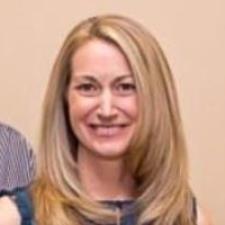 Post Classifieds
Post Classifieds
A SAD response and caution
There seems to be an epidemic of self-diagnosis surging through popular culture, not excluding the campus of PSU. Seasonal Affective Disorder (SAD) occupies that illustrious space in science where equal numbers of experts sit on both sides of the fence. There are many skeptics and many supporters all of equal prestige. During the latter part of the 1990's many studies were designed and executed to measure the likelihood of seasonal change affecting a persons mental state. In one particular study researchers spent months observing and surveying the scientists and engineers at stations in Antarctica where they were not only isolated from sunlight, but also from outside social interaction and adequate warmth and sometimes even nutrition. This creates a hard to ignore parallel with undergraduate life. Yes, undoubtedly, many students face a downturn in mood during the winter months. But there are dangerous side effects to attributing that to a latent case of SAD. If you were to visit your physician and describe the symptoms of SAD he/she may very well prescribe you a mild anti-depressant or refer you to a psychiatrist. Light therapy is costly and many doctors, such as researcher of neuropsychopharmacology, Paul Grof, question the validity of SAD based on a lack of justifiable evidence. Dr. Norman Rosenthal, the prominent researcher of SAD (and, consequently, the person who gave it it's name) offers, on his website, a 6 item test that anyone can take, which claims to tell you whether you suffer from SAD or not. In taking the test you are to note any noticeable changes in your sleep patterns, social activity, mood, weight, appetite and energy levels. All of these changes can just as easily be attributed to the lifestyle changes common to students during the winter months. Accordingly treatment may lie no farther than your own body. The stress of course-work over the winter months can cause changes in mood and social activity. By putting effort into your time management you can relieve considerable amounts of stress. Also, for example, if you consume more than a few alcoholic drinks a week your body needs some help to get rid of it. Alcohol depresses your system. Therefore, a walk (and going to class doesn't count) outside, or a jog can help to move those toxins along. A little bit of exercise in a case of SAD mis-diagnosis may go a long way. Exercise will not only help clean out your system, it will also raise your mood, promote a healthier appetite (fruits, veggies and grains) and help you to maintain a healthy weight. There is evidence from a 2002 study in Australia that the release and re-uptake of the chemical serotonin in the brain is often slowed during winter months and when a person has less exposure to light. Serotonin levels are strongly linked to depression and so this study provides evidence for the existence of SAD as a mental disorder. However, increases and decreases of production were barely significant and the external events that can also be linked to the "winter blues" are too numerous to account for all of them within the research. The Diagnostic and Statistical Manual of Mental Disorders (DSM IV) is the American Psychological Association's definitive source for recognition and diagnosis of mental and behavioral disturbances. The DSM IV only recognizes seasonal disorders in so far as they are in conjunction with a previously diagnosed form of clinical depression. In conclusion, several more studies have been conducted in recent years to investigate the prevalence of SAD. Some even took place in New England with college students as subjects. But even here, the research was done from only self-report measures (surveys etc.) and there weren't and control measures taken. So, before you label yourself with a mental disorder or blame the cosmos for your problems, assess your environment and lifestyle. Just as it is justified to say that Seasonal Affective disorder is an important and valid phenomenon it is just as warranted to place it in line with several other, psuedo-scientific pop-culture oddities such as the Atkins Diet and Herbal Supplements.
Annabelle Winters
536 5523
a_winters@mail.plymouth.edu
Get Top Stories Delivered Weekly
More theclockonline News Articles
- The Afrofutures of Feminism: Young, Gifted, and Black
- A Weekend of Darkness
- Elizabeth Warren Visits PSU
- Freedom of Speech at PSU
Recent theclockonline News Articles
Discuss This Article
MOST POPULAR THECLOCKONLINE

Campton Elementary School 8th Grade Silent Auction & Spaghetti Dinner By Rebecca Tgibedes

Will You? By Isabelle Elsasser

Summer in the Sunflowers By Emily Holleran

Student Spotlight: Sabrina Siegel By Justine Walsh
GET TOP STORIES DELIVERED WEEKLY
FOLLOW OUR NEWSPAPER
LATEST THECLOCKONLINE NEWS
RECENT THECLOCKONLINE CLASSIFIEDS
OUTSIDE THE LINES
- Effortless Holiday Hosting: Simple Tips to Keep Your...
- There’s More To Vision Health Than Meets the Eye
- Medications and Wellness Essentials Delivered to Your...
- Understanding Spam—And How To Stop It
- 1 in 5 Vehicles on the Road Has an Open Recall—Yours C...
- A Difficult Diagnosis Sparks Hope and Support for...
- Fall For Improved Vehicle Protection
- Six Ways To Save Money This Holiday Season
- BigFuture Resources Help Students Discover College,...
- Anheuser-Busch Celebrates American Growers on National...
FROM AROUND THE WEB
- BookTrib's Bites: Four Enthralling Autumn Reads
- Trump's Flawed Tariff Proposal
- How Artificial Intelligence Intersects with Energy
- 6 Reasons Fiberglass is the Pool Material of Choice for...
- BookTrib’s Bites: Four Unforgettable Reads
- Navigating “Gramnesia” This Holiday Season
- BookTrib’s Bites: Dive Into These Four Exciting Fall Reads
- Easy Monster Margarita is No Trick, All Treat
- Help Marine Toys for Tots Deliver Hope to Children in...
- 5 Tips to Pick the Right Dental Plan










